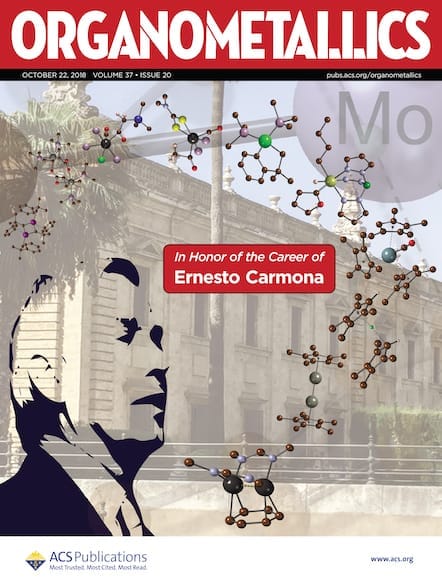It’s the drug development version of having your cake and eating it too: Imagine being able to efficiently manufacture only the desired enantiomer of a drug. Professor Shu-Li You of the Shanghai Institute of Organic Chemistry is working on a way to do just that. You is the Director of State Key Laboratory of Organometallic […]

It’s the drug development version of having your cake and eating it too: Imagine being able to efficiently manufacture only the desired enantiomer of a drug. Professor Shu-Li You of the Shanghai Institute of Organic Chemistry is working on a way to do just that.
You is the Director of State Key Laboratory of Organometallic Chemistry, Shanghai Institute of Organic Chemistry, Chinese Academy of Sciences. He is also an Associate Editor of Organometallics. One focus of his work is on the development of highly efficient catalytic asymmetric dearomatization reactions.
“For this type of reaction we want to convert commercial, readily available, cheap planar compounds without chirality into a 3-dimensional molecule with chirality,” he said. “With our method, we are developing a new strategy with a new catalyst to enable this process from readily available aromatic compounds. And now we can get a pair of 3-dimensional chiral molecules and actually try to eliminate one of the mirror images to get just one of the enantiomers.
“So this kind of compound has a spiro ring formation; it is a polycyclic compound. This is a highly privileged type of molecule in a drug discovery program, so that’s why currently we have a collaboration with several international pharmaceutical companies.”
Professor You has been aware of the power of chemical reactions ever since he was a student in middle school. A teacher showed him what happens when sodium comes in contact with water. The dramatic display left an impression on him that’s never faded.
“I think that’s what really started to get me interested in chemistry,” he said. Recognizing that chemists had the power to change the world around them left an impression on him that’s never faded.
“As an organic chemist we can create things, create things that have never been in the world before,” he said. “We want the discovery we make to benefit the whole community, to benefit the whole society.”
“The challenge is always doing something new. I mention the importance of imagination. We want to think big, we want to think of something useful, that potentially can be applied in industry,” he said.
Read Selected Research from Shu-Li You:
Iridium-Catalyzed Intramolecular Asymmetric Allylic Alkylation of Hydroxyquinolines: Simultaneous Weakening of the Aromaticity of Two Consecutive Aromatic Rings
J. Am. Chem. Soc., 2018, 140 (8), pp 3114–3119
DOI: 10.1021/jacs.8b00136
Palladium(0)-Catalyzed Intermolecular Asymmetric Allylic Dearomatization of Polycyclic Indoles
Org. Lett., 2018, 20 (3), pp 748–751
DOI: 10.1021/acs.orglett.7b03887
Regio- and Enantioselective Rhodium-Catalyzed Allylic Alkylation of Racemic Allylic Alcohols with 1,3-Diketones
J. Am. Chem. Soc., 2018, 140 (24), pp 7737–7742
DOI: 10.1021/jacs.8b05126
Cp*RhIII-Catalyzed C–H Amidation of Ferrocenes
Organometallics, 2017, 36 (22), pp 4359–4362
DOI: 10.1021/acs.organomet.7b00691
